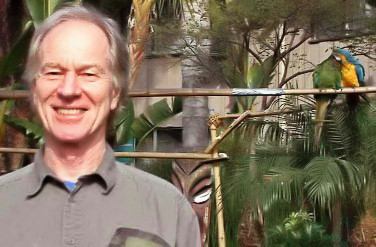 I was born in California 25 April, 1937, on my father’s small turkey and rabbit farm in a Los Angeles that no longer exists.
I was born in California 25 April, 1937, on my father’s small turkey and rabbit farm in a Los Angeles that no longer exists.
Things change. My father, a Shawnee-French orphan, had ended a 25-year odyssey as a hobo and a Travels With Charlie socialist to settle down in the yet-rustic Los Angeles, California, as a steel worker and militant socialist union organizer. This was during the turbulent union foundation years of 1910 to the late 1920s. In 1929, he married my mother, from a well-to-do San Francisco family of German Canadians. Probably as a result of the marriage he became a Republican. I was born when he was 66 years old. Then he had the worst of both worlds, old and poor and a Republican.
After my father’s health declined, I grew up in public housing projects in LA and later San Francisco. In between, from age 7 to 14 years I lived in semi-rural areas of the San Joaquin Valley, where I picked cotton and fruits alongside the Dust Bowl migrants. These included Anglo laborers, Oklahoma and California Indians, Mexican immigrants who were basically uprooted American Indians, a variety of Asians from Indian Hindus to Filipinos, African-American former slaves (“colored” people) escaping the southern states, and various blends of these and others.
In 1966, on a break from San Francisco State University during my master’s degree, I returned to the San Joaquin Valley to work with Cesar Chavez and the United Farm Workers’ Organizing Committee. Like my father before me, I faced the wrath of the big owners and their managers as we carried picket signs and talked with the farm workers in their fields, diving into irrigation ditches to escape being run down by a car full of rednecks or a driver with a pistol; real education about the polarized USA of 1966.
In 1963 I was a young hippy on a two-year odyssey after leaving a Peace Corps teaching assignment in an upcountry village in West Africa. I had arrived in Europe with $200 US, spent the summer working in a UNESCO youth hostel in Paris, and then rode a WWII Puch motorcycle loaded with two suitcases and a companion, south into Spain, where I took a job at the United States Information Center teaching English conversation to local business people in the Valencia of Franco’s Spain
It was time for me to continue on my Journey to The East. I gave the Puch to a friend, and after listening to the monks chant all night New Years Eve, at Montserrat monastery near Barcelona, I escaped on a Turkish freighter going to Haifa at the opposite end of the Mediterranean on New Years Day. I was hoping to go overland from there into India, but I found that the border with Jordan was closed.
I spent the entire year of 1964 in Israel, the first half of the year on Kibbutz Dafna in the Upper Galilee. I was in the ulpan program where I was force-fed Zionist ideology and studied Hebrew language half days and worked in their fields and factories in the afternoons.
The other half of that year was lived in a small, formerly Palestinian village of Leefta, on the outskirts of Jerusalem. In Jerusalem, I worked for the Israeli Center for Anthropological Research doing field research among the Kurds who had moved into Leefta. I also got a sense of the artistic-left wing and expatriate foreign community aspect of Israeli society, their own counterculture movement, which feels itself to be equally as impotent as we of the counterculture in the US feel ourselves to be.
After two years I returned to complete my MA at San Francisco State, I finally was to make it to India in 1970, after my doctoral research year in Afghanistan as a student at Indiana University.
A lot of things happened, from 1970 until now, including several trips to Mexico both for work and for just hanging out, teaching at several universities, working for the Klamath Tribes, and the Federal Government in California, on the Navajo Nation and finally in Alaska. It was the Bureau of Indian Affairs and Alaska that finally did me in, and I just wanted out of it all. It was the autobiographic present of December, 2002,
I am a product of America, of its mix of peoples, of its educational and labor class systems and their propaganda, and especially of the practice of cultural anthropology, or ethnography, which developed in an academia of an earlier era out of a different vision for society than rules today. Life as an ethnographer leads to a unique way of viewing the world.
My essays to date on ZA are: